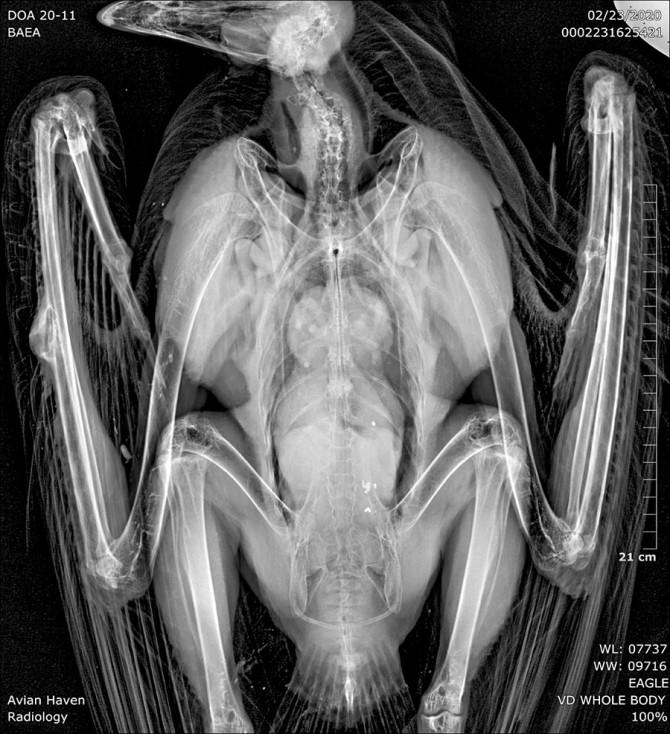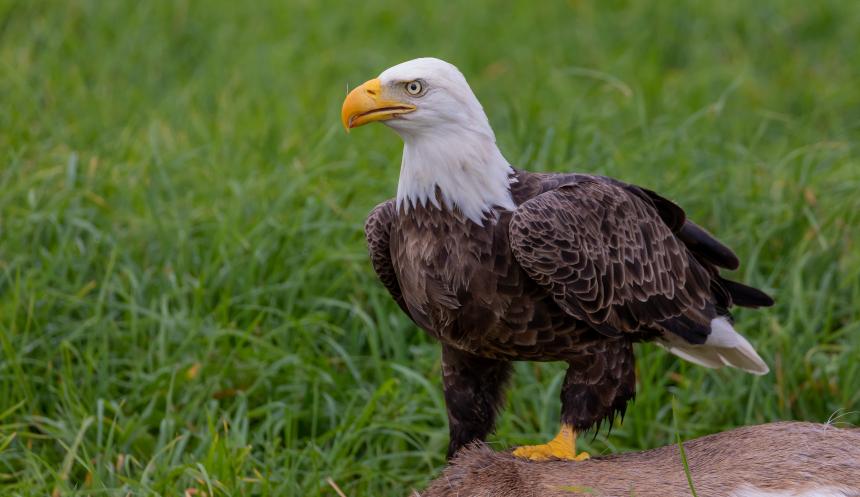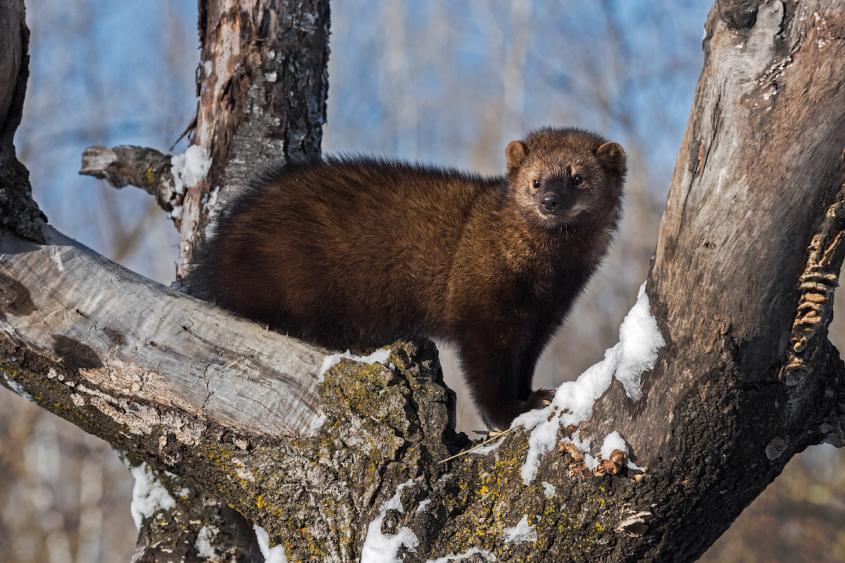In the News

January 31, 2022
The Cornell Wildlife Health Center continues to enhance synergy among many of Cornell’s wildlife-focused programs, expand student learning opportunities, and capitalize on earnest interdisciplinary approaches to addressing key wildlife conservation and related public health challenges.

January 26, 2022
The bald eagle population has slowly recovered from the impact of a pesticide that nearly drove them to extinction decades ago. But now researchers at Cornell University have found that lead ammunition continues to hamper the resilience of these American icons.

January 23, 2022
As the number of American bald eagles has continued to soar in recent years, Cornell researchers are now warning the species’ reemergence is being threatened by lead poisoning from gun ammunition.

January 19, 2022
Bald eagle populations have slowly recovered from near devastation after the government banned DDT in 1972, but another ongoing issue has weakened that rebound – lead poisoning from gunshot ammunition.

For Your Information
January 18, 2022
Bald eagles are considered a recovery success in the U.S. after rebounding from near extirpation due to widespread use of DDT. Although abundances of bald eagles have increased since DDT was banned, other contaminants have remained in the environment with unknown influence on eagle population trends.

January 03, 2022
The New York State Department of Environmental Conservation recently renewed the New York State Wildlife Health Program for $6.4 million over five years. This partnership has enabled Cornell to work with the state’s wildlife biologists on threats that affect all of New York's wildlife.

December 09, 2021
There is no safe level of lead for any wildlife species, and a hunter’s ammunition choice can mean life or death for scavenging wildlife.

December 09, 2020
The Cornell University College of Veterinary Medicine has released its 2020 Annual Report, detailing its progress in its key strategic priority areas, including "Advances in Animal, Human and Ecosystem Health."

Video
August 09, 2017
The comeback of the American bald eagle is a success story across the nation, but now these magnificent birds are facing another threat. See what Cornell scientists are doing to help determine the sources and impacts of lead in New York bald eagles.

May 31, 2017
The comeback of the American bald eagle is a success story across the Great Lakes region, and keeping them safe is a high priority for many environmental professionals. But one serious threat to the great raptor is lead poisoning.
